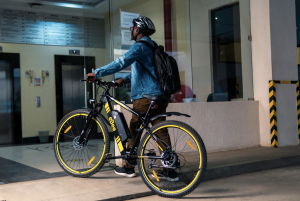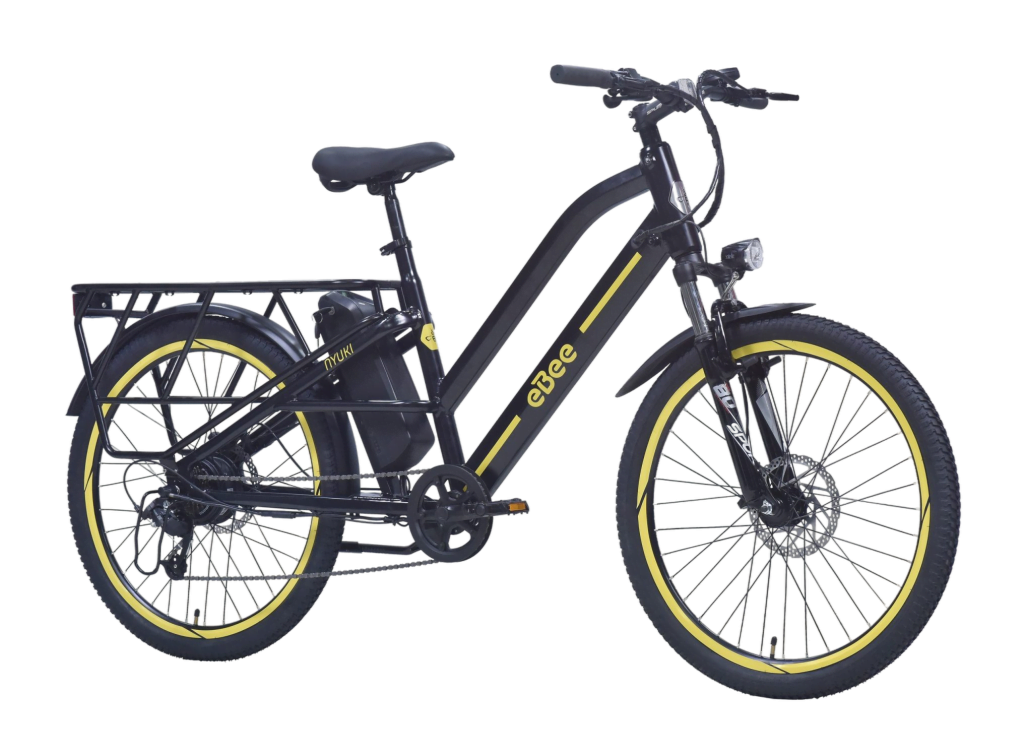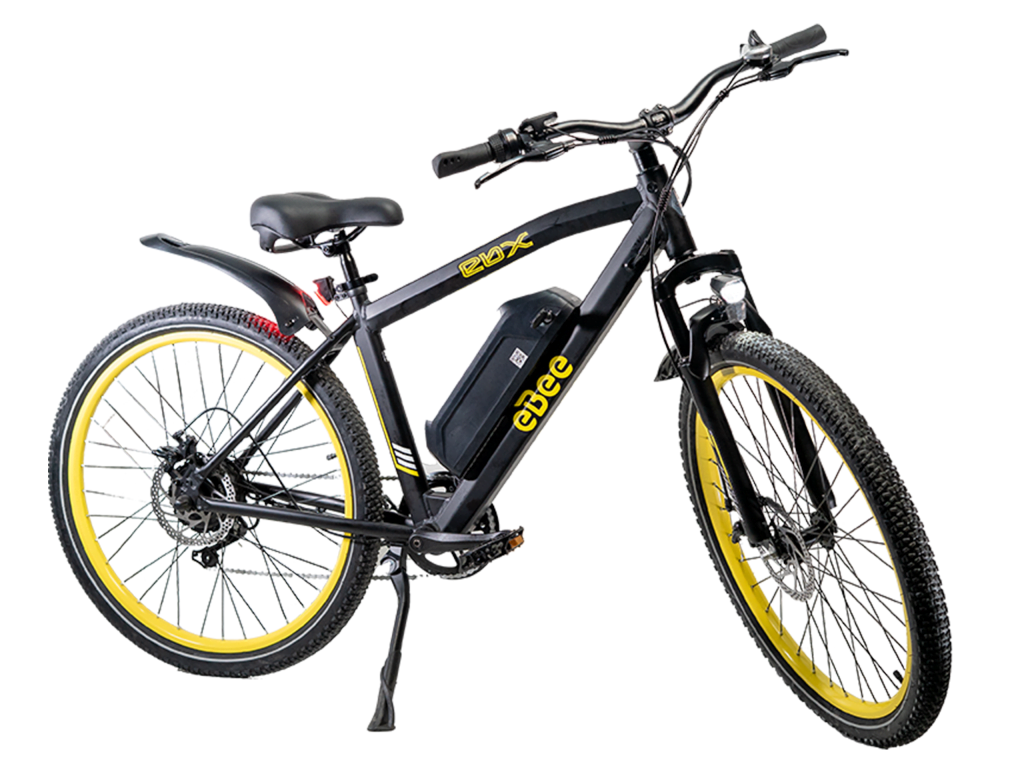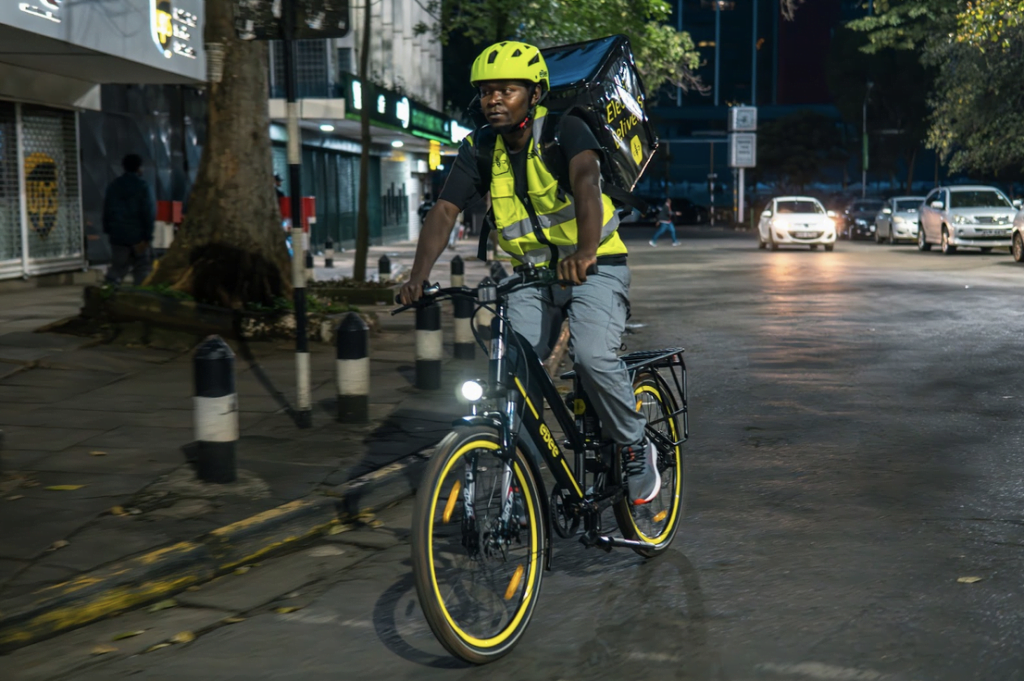African cities are expanding rapidly, with urban populations expected to double by 2050. This growth will significantly increase transportation demand, but many cities are already struggling with congested roads, inadequate public transport, and rising pollution. Fossil fuel-powered vehicles only worsen these issues, contributing to air pollution and making transportation costly for many residents.
As e-commerce continues to grow and urban spaces become more crowded, the need for smaller, more efficient modes of transportation is becoming increasingly evident. With limited road space and the rising demand for quick, last-mile delivery solutions, traditional vehicles are no longer the most practical option for navigating congested city streets. This shift in urban dynamics makes the adoption of agile and sustainable options, like electric bicycles, inevitable. E-bikes offer a cleaner, more affordable alternative for short distances and densely populated areas, easing traffic congestion and reducing environmental impact.
The Role of Electric Bicycles
Electric bicycles are emerging as a viable solution to these urban transportation challenges. Here’s how e-bikes can address the key issues facing African cities:

1. Reducing Traffic Congestion
E-bicycles are compact, agile, and can easily navigate through crowded urban streets, significantly reducing the time spent in traffic. With the ability to take alternative routes, avoid jams, and even use cycling lanes where available, e-bikes offer a faster and more reliable means of transport in congested cities.
2. Promoting Environmental Sustainability
One of the most compelling benefits of e-bikes is their environmental impact. Powered by rechargeable batteries, e-bikes produce zero emissions, helping to reduce air pollution and carbon footprints. In cities where pollution levels are dangerously high, the widespread adoption of e-bikes could lead to cleaner air and a healthier environment.

3. Cost-Effective Mobility
E-bikes offer a more affordable transportation option compared to cars or motorcycles. The cost of purchasing and maintaining an e-bike is significantly lower, and the energy required to charge the battery is minimal compared to fueling a car. This makes e-bikes an accessible option for a broader segment of the population, particularly in low-income urban areas.
At eBee, we’re committed to making electric bicycles even more accessible through our partnerships with various microfinance organizations that enable customers to pay flexible installments as they ride. These partnerships ease the financial burden and allow more people to benefit from this sustainable mode of transport. By spreading out the cost, we’re ensuring that a greater number of urban residents can afford reliable and efficient transportation, further contributing to the solution of urban mobility challenges in Africa.
Additionally, e-bicycle batteries are charged through regular power outlets, which makes it possible for many households to power their bikes affordably.

4. Enhancing Accessibility
E-bikes can provide greater access to transportation for those living in areas poorly served by public transport. With the ability to cover longer distances in shorter time frames compared to traditional bicycles, e-bikes extend the reach of individuals to jobs, education, healthcare, and other essential services.
5. Supporting Health and Well-Being
While e-bikes are motorized, they still require pedaling, promoting physical activity and contributing to overall health and well-being. For urban residents who may otherwise have limited opportunities for exercise, e-bikes offer a convenient way to stay active.
At eBee, we’re committed to making electric bicycles a central part of the solution to Africa’s urban transportation challenges. Our locally assembled e-bicycles are designed to meet the specific needs of African cities, offering durability, reliability, and affordability. As African cities continue to grow, embracing e-bicycles can help alleviate congestion, reduce pollution, and improve the quality of life for millions of people.




